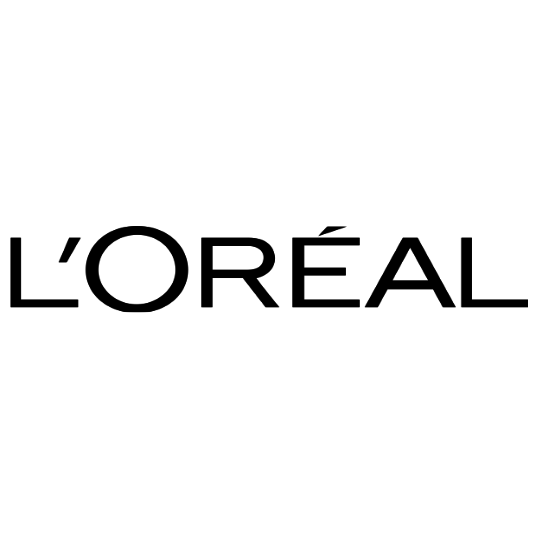L’Oréal psychometric tests
Learn more about L’Oréal psychometric tests
Prepare for your L’Oréal numerical reasoning tests. Give yourself the best chance of passing your L’Oréal numerical reasoning tests.
Prepare for your L’Oréal numerical reasoning tests. Give yourself the best chance of passing your L’Oréal numerical reasoning tests.

Learn more about L’Oréal psychometric tests
Prepare for your numerical reasoning test
Practice with free numerical reasoning tests

Register now for free numerical reasoning tests to give yourself the best preparation for your L’Oréal numerical reasoning tests.

Applicants for certain roles that progress to Stage 2 of the L’Oréal recruitment process are required to complete psychometric tests, provided by Cappfinity and Saville Assessment, to demonstrate their proficiency in skills essential for the role. The numerical reasoning tests evaluate candidates’ ability to apply and understand mathematical concepts within a workplace context, while verbal reasoning tests assess language comprehension and communication skills. Situational judgement tests measure decision-making capabilities in hypothetical scenarios, and logical reasoning tests assess the ability to identify patterns and draw conclusions to solve abstract problems. L’Oréal mandates the completion of the following assessments:
In a L’Oréal video interview, candidates should present themselves professionally and confidently while demonstrating their qualifications for the role. Use the STAR method (Situation, Task, Action, Result) to structure your responses to the four behavioural questions. This ensures your answers are clear, concise, and focused, allowing you to provide specific examples that illustrate your strengths and achievements effectively. Highlight your relevant skills and experience, making clear connections between your abilities and the requirements outlined in the job description. Show how your values align with L’Oréal’s core principles, such as passion, innovation, and entrepreneurial spirit, to emphasise your suitability for the company culture. Be enthusiastic and genuine throughout the interview, showcasing your motivation and excitement for the role.
The L’Oréal assessment centre is a comprehensive evaluation process designed to assess a candidate’s skills, competencies, and overall suitability for a role. Depending on the position, candidates may participate in various exercises, such as a group activity to evaluate teamwork and leadership abilities, and a presentation exercise to test confidence and communication skills. These activities are tailored to reflect the specific requirements of the role, providing a well-rounded assessment of the candidate’s potential.
L’Oréal incorporates psychometric tests into its recruitment process to identify candidates who align with its core values, such as self-respect, inclusion, environmental sustainability, and openness. These assessments, as well as numerical reasoning explained above, include verbal reasoning, logical reasoning, and situational judgement, and are part of L’Oréal’s four stage application process and aim to ensure a standardised approach to hiring. Verbal reasoning tests assess skills in language comprehension. Logical reasoning tests evaluate a candidate’s ability to identify patterns and draw conclusions to solve abstract problems, and situational judgement tests provide an opportunity to showcase critical thinking in hypothetical scenarios. Success in these tests requires a combination of strong understanding, accuracy, and speed, making familiarity and thorough preparation essential for improving performance and increasing the chances of success in L’Oréal’s recruitment process.
Register now for free psychometric tests to give yourself the best preparation for your L’Oréal psychometric tests.

L’Oréal verbal reasoning tests, provided by IBM Kenexa and Talent Q, are a key component of the recruitment process. These assessments consist of 12 questions and each question is individually timed. Candidates are required to extract relevant information from previously unseen texts and assess the validity of statements in a multiple-choice format, demonstrating skills in comprehension, logical reasoning, and attention to detail. Verbal reasoning tests are used by L’Oréal as a standardised and time-efficient method to evaluate large volumes of applicants. By focusing on skills essential to the role, these tests help the company identify candidates who can effectively process and interpret written information, ensuring a fair and systematic approach to recruitment.

L’Oréal logical reasoning tests, provided by IBM Kenexa and Talent Q, are timed online assessments designed to evaluate critical thinking and problem-solving skills. Candidates have 20 minutes to answer 20 questions, each based on five diagrams, requiring them to identify patterns and determine the next sequence. These tests assess a candidate’s ability to recognise relationships, analyse information, and draw logical conclusions. By offering a standardised and time-efficient evaluation method, logical reasoning tests help measure cognitive abilities that are not reliant on prior knowledge or specific expertise, making them ideal for assessing potential across a wide range of roles.

L’Oréal situational judgement tests, provided by IBM Kenexa and Talent Q, are timed online assessments aimed at evaluating candidates’ decision-making skills. The time allotted varies depending on the tasks included. These tests present hypothetical, job-related scenarios, requiring candidates to choose the most appropriate responses for different situations and contexts. To excel, candidates should align their answers with L’Oréal’s core values, including passion, innovation, and entrepreneurial spirit, while showcasing professionalism, sound judgement, and suitability for the role.

L’Oréal numerical reasoning tests, provided by IBM Kenexa and Talent Q, evaluate candidates’ abilities to interpret and analyse numerical data, solve mathematical problems, and make informed decisions. These tests focus on workplace-relevant tasks such as calculating percentages, ratios, and averages, assessing critical thinking and problem-solving skills.
The tests typically last 20 minutes and consist of 20 multiple-choice questions. This time constraint requires candidates to balance speed and accuracy effectively.
To excel, candidates should have a strong grasp of core mathematical concepts, including percentages, ratios, averages, and the ability to interpret information from graphs, tables, and charts.
Preparation involves practising numerical reasoning questions to build confidence and improve speed. Focus on realistic workplace scenarios and develop effective test strategies, such as time management and question prioritisation.
Every company’s numerical reasoning test is different. L’Oréal has been known to have their pass rate for their numerical reasoning test as high as 75%. This is why it is so important to ensure you have revised the correct amount before sitting the L’Oréal numerical reasoning test.
Numerical reasoning tests provide a standardised and objective method to assess candidates’ quantitative skills. They help L’Oréal identify applicants with the analytical abilities required for roles involving data-driven decision-making, ensuring a fair and efficient recruitment process.